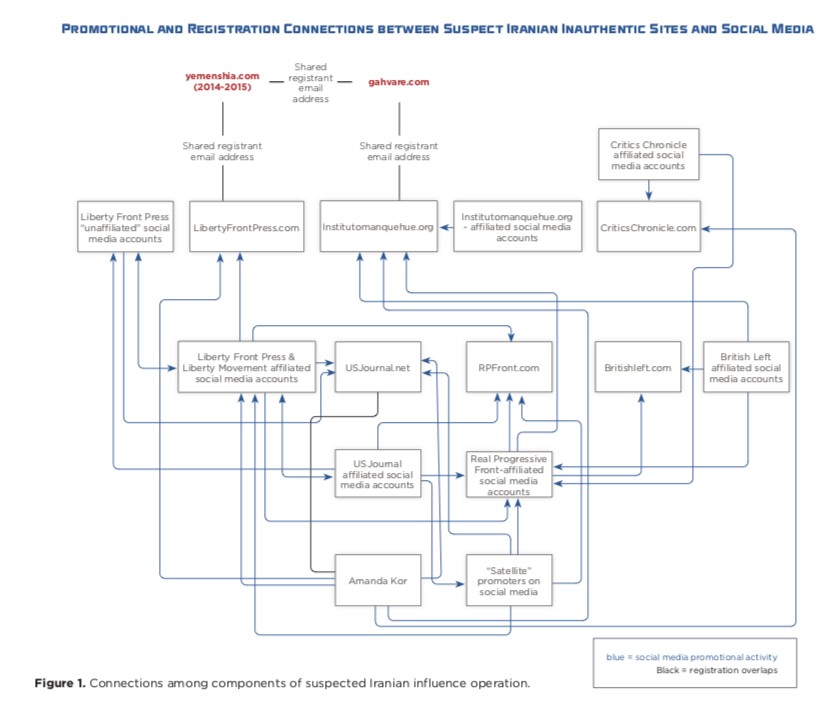As U.S. mid-term elections near, social media giants say they have discovered and banned hundreds of accounts, groups and pages linked to Russia and Iran in a move intended to (belatedly) guard against political interference.
Google has banned more than 80 YouTube channels allegedly connected to attempts by Russia and Iran to spread misinformation, with 39 channels said to be tied to Iran and 42 to Russia. Specifically, Google’s chief of global affairs, Kent Walker, said the channels were connected to IRIB (Islamic Republic of Iran Broadcasting) or the Russian government.
Walker did, however, note that the banned Russia-linked channels had only garnered 1,800 views, while the Iranian-connected channels had hit just under 13,500 views before being banned.
Both Facebook and Twitter have also chimed in. Facebook says it has suspended hundreds of social networking and Instagram photo-sharing accounts, deleting a total of 652 accounts linked to Iran and Russian and described as coordinated influence campaigns disseminating politically charged content.
Facebook’s internal investigation said it showed that many accounts were linked to what appears to be a parent account created by Russia's Internet Research Agency (IRA), which is said to be a troll farm also used to influence the 2016 elections.
Twitter has suspended 284 accounts believed to be engaging in coordinated manipulation, and Microsoft has said it discovered and disabled fake websites attempting aiding a hacking group allegedly connected to the Russian government with the intention of gaining access to visitors’ computers.
Prior to the social media crackdown last week, cybersecurity group FireEye released a report detailing an Iranian influence operation. Related: U.S., Mexico Wrap Up NAFTA Talks On A Positive Note
FireEye’s report, however, noted that the accounts it investigated did not seem to have been designed with the explicit intention of influence U.S. mid-term elections.
FireEye said it had identified “a suspected influence operation that appears to originate from Iran, aimed at audiences in the U.S., U.K., Latin America, and the Middle East […] leveraging a network of inauthentic news sites and clusters of associated accounts across multiple social media platforms to promote political narratives in line with Iranian interests. These narratives include anti-Saudi, anti-Israeli, and pro-Palestinian themes, as well as support for specific U.S. policies favorable to Iran…”.

(Click to enlarge)
But when it comes to mid-term elections, it’s too little, too late.
Last week, Facebook’s former security chief Alex Stamos told reporters the social media crackdown on foreign political influencers was a day late and dollar short where it concerns this year’s mid-term elections, but these belated moves may help to save the 2020 election.
Related: Emerging Market Currency Crisis Weighs On Gold Prices
“The United States has broadcast to the world that it doesn’t take these issues seriously and that any perpetrators of information warfare against the West will get, at most, a slap on the wrist. While this failure has left the U.S. unprepared to protect the 2018 elections, there is still a chance to defend American democracy in 2020,” Stamos said.
But it’s a difficult war to fight, while simultaneously trying to protect democracy.
“Regardless of how you feel about the tech platforms, eradicating misinformation while preserving free speech is a monumental challenge,” Renee DiResta, director of research at New Knowledge and a Mozilla fellow on media, misinformation and trust, wrote for WIRED magazine.
It’s a war that no one knows how to fight from a defensive perspective, and it’s going to require some fast-learning because today’s major global battles aren’t taking place in the physical realm.
By Michael Kern for Safehaven.com
More Top Reads From Safehaven.com
















